At the start of January, Donald Trump offered up a cheery new year message for Americans. “If I don’t get immunity, then Crooked Joe Biden doesn’t get immunity,” the former president declared on his social media platform Truth Social. With this, he touched on a looming question about 2024: will the presidential race be decided by lawyers and jurors, rather than voters?
Trump showed up in court for the first criminal lawsuit against him this week, a case which could in theory result in a decades-long jail sentence. He’s accused of paying hush money to the former porn star Stormy Daniels, then falsifying business records to conceal the information from voters during the 2016 presidential campaign. (He denies the charges.) It accounts for thirty-four of the ninety-one criminal charges that have been levied against Trump across four indictments, ranging from accusations of fraud to attempts to tamper with the 2020 election result.
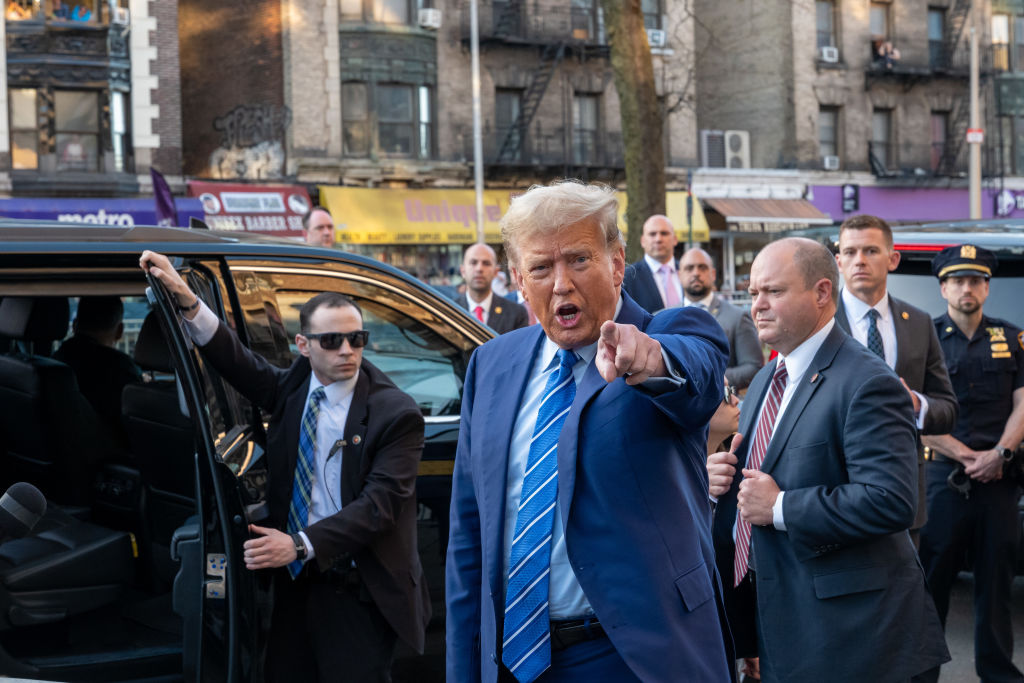
Biden has not yet found himself the defendant in a courtroom, but some of his opponents hope to change that. Like Trump, he has been found to have mishandled classified documents. But his legal battles have so far largely been confined to Congress, where a Republican-controlled House of Representatives is desperate to impeach him, “whether it’s justified or not” in the words of the Texas senator Ted Cruz.
The calls for Biden’s impeachment started as soon as he was elected, thanks to his alleged connections to his son Hunter’s questionable business deals. Since then, there have been renewed impeachment calls over the botched withdrawal from Afghanistan.
Across the Atlantic in Britain, it’s crucial that judges are seen to be above party politics. Americans are used to a far more politicized legal system. In many places in the US, judges stand for election, sometimes aligning with political parties. Police departments are run by county sheriffs, who can also face politicized elections. In recent years, however, as political opinions have become more polarized, the legal system has been further weaponized: any ambitious US politician should be prepared for their opponents to accuse them of criminality.
Rayner has placed her political future in the hands of the police and said she’ll quit if they find against her
For reasons beyond understanding, there seems to be growing enthusiasm elsewhere to follow the States and adopt this lock-’em-up trend: Britain seems increasingly comfortable using this playbook. The trick is for politicians to persuade the police to investigate their political foes, so the theater of the investigation casts them as crooks. The Americans have shown what an effective strategy this can be. Dawn raids; officers entering property; politicians who say they can’t comment due to the ongoing criminal investigation — all this can sully a politician’s reputation regardless of their innocence or guilt. The details of a case seem to matter little when there’s a police statement, a fine, or indeed an arrest to tout in the headlines.
Now it’s Angela Rayner’s turn. We learned this week that at least a dozen officers at Greater Manchester Police are investigating Labour’s deputy leader over whether she reported to the electoral register correctly a decade ago. This has raised a host of other questions, including the difference in tax that might have been paid on the sale of a house. (Rayner has repeatedly denied she has done anything wrong.) Stephen Watson, the chief constable, has been trying to stress that looking into Rayner’s affairs is a “neutral act.” But it is nothing of the sort: the story is the Tories’ new favorite attack line.
Rayner’s form-filling matters more now that she has a senior role in Britain’s Labour Party. But there is no doubt that these accusations are politically motivated. It was James Daly MP, deputy chairman of the Conservative Party, who informed the police about Rayner’s neighbor’s claims that she may have listed the wrong home address. Just as Democratic district attorneys pull up the charges against Trump, Tories now do it to Labour.
This only works if the Manchester police will prioritize Rayner’s forms over, say, the many assaults, robberies, fraud and drug dealing that are happening in the city’s streets daily. Not so long ago, the British police resented being used as partisan pawns and would refuse to drop everything when a politician picked up the phone. But from 2005 to 2007, the phone-hacking investigation set a precedent when a huge police investigation was launched. This took on a new dimension when Labour MP Tom Watson launched a campaign which implicated Andy Coulson, a former tabloid editor and by then David Cameron’s spin doctor. This in turn means that the police can’t be seen to respond to the complaints of one party but not another.
Rayner has learned from her boss the best tactics for surviving the game. When Keir Starmer was accused of breaking lockdown rules by having a beer and a curry with staff, he immediately announced that if he was fined he would go. (This itself was a political gesture that was intended to show him in a good light compared with Boris Johnson.)
Labour’s deputy leader has made the same pledge, placing her political future in the hands of the police and saying she’ll quit if they find against her. This puts a lot of pressure on the officers deployed to the investigation. If they fail to do a thorough job, they’ll be accused of protecting the powerful. If they do act on the information, they risk straying into territory that is meant to belong to voters — deciding whether a politician remains in their position. Just as Starmer let Durham police decide his future, Rayner is almost daring the Manchester police to do the same with her.
None of this compares to the antics in Scotland over the past few years, where even people with similar political beliefs send the police after each other. Allies of the former first minister Alex Salmond made spectacular claims a few years ago that Nicola Sturgeon’s inner circle were trying to have him imprisoned on trumped-up sexual assault charges, in a bid to remove him as a political threat. He was acquitted of all the charges.
It wasn’t long until Sturgeon had her own run-in with the police, when both she and her husband Peter Murrell were arrested and interviewed last year about a missing £600,000 designated for referendum campaign spending. No charges have been laid so far (both Sturgeon and Murrell deny any wrongdoing), but in the political arena, that technicality isn’t important. The process is the punishment. All you need are a few photos of the police tent going up at her home — of gardening equipment and spades being removed as if they were offensive weapons — and the damage is done.
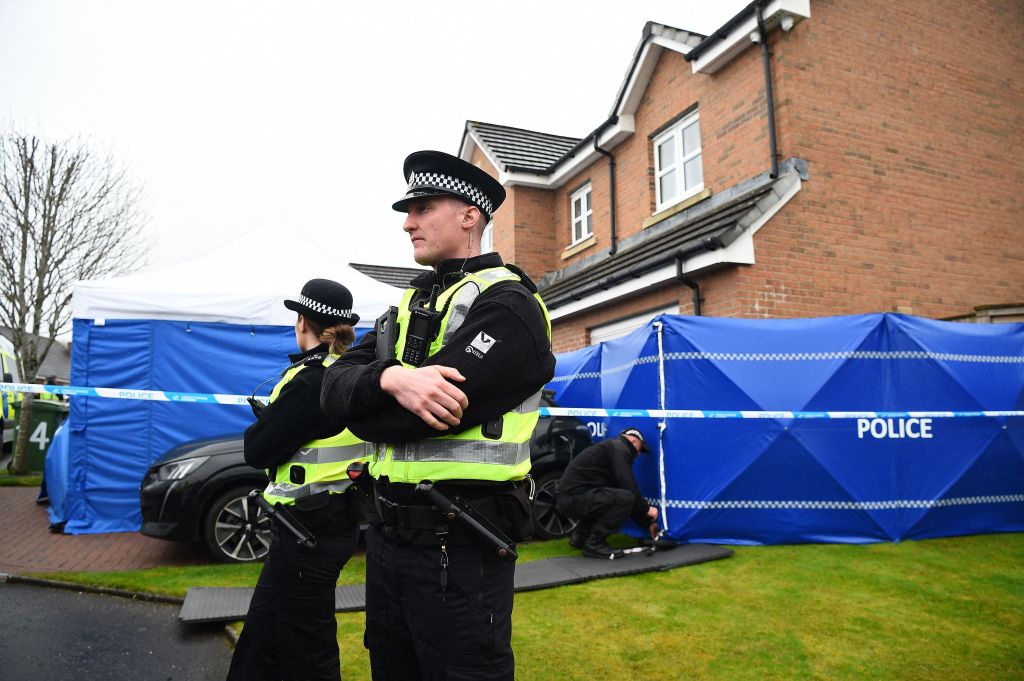
Politicians cannot be above the law. It would be a grave error to create, intentionally or by inaction, a two-tiered system whereby lawmakers are not held accountable for their actions. The pandemic recently shed light on what happens when politicians don’t feel compelled to follow the rules. Within weeks of the first lockdown being declared, a “party elite” formed in Whitehall. Ministers and aides, we now know, threw parties and mingled without quarantine, while most people sat at home. No one involved seemed to think the police would come after them.
The subsequent police investigation and fine for breaking lockdown rules were to be the undoing of the then prime minister. But Johnson’s saga is perhaps an example of how the playbook should be written: he was investigated in the same way he had ordered the police to pursue the general public. There didn’t need to be threats of jail time or a criminal conviction for there to be political consequences. In the end, it was the hypocrisy and collapse of trust that forced Johnson out.
America is a cautionary tale of how a free and fair nation starts prosecuting political opponents
Aren’t such revelations of hypocrisy usually a more powerful political tool than police involvement in any case? Sturgeon’s endless accusations of “classic corruption” in the Tory Party have lost all their resonance now, given her own party’s circumstances.
It was the Labour MP Neil Coyle who wrote a letter to the Met Police in 2021 demanding an investigation into Partygate — and it was Rayner who called on Johnson to resign because he was being investigated by the police. Perhaps the shadow foreign secretary David Lammy’s comments in defense of Rayner—– that she should be held to a “different arrangement and expectation” because she is not yet in government — tell voters more about the shifting principles of the Labour Party than anything else.
It’s difficult to give up these “gotcha” moments. Nothing sates the political beast’s appetite more. Unionists reveled in the photos of police officers examining Sturgeon’s barbecue; just as the Tories are now savoring the Rayner investigation. It wasn’t just the left, but every curtain-twitcher in Britain who seemed delighted by seatbelt-gate — when an influx of “reports” to the Metropolitan Police from the public last winter landed Sunak with a fine for failing to wear a seatbelt in a video published on social media.
Where does all this political persecution lead? In theUS, the Trump trials are eroding faith in politics and the law even further. Pollsters now ask voters if they think Trump should end up behind bars in the same way they might ask if they think taxes are too high. To jail or not to jail one’s political opponent has become an intrinsic part of political debate, similar to border security or the trajectory of the deficit.
Many Americans have a gnawing feeling that they’re being governed by crooks, both in Congress and the courthouses; that they’re all as bad as each other. Yet every time Trump is faced with another criminal charge, his poll ratings spike. While Americans don’t much like their choices for president, they really don’t like being told by lawyers who they are entitled to view as a legitimate political choice. Everyone can see that Trump’s charges are a mechanism to keep him off ballot papers and out of the White House — just as the Rayner investigation could deprive Labour supporters of her as deputy leader. Voters tend to believe that such decisions are best left to them in the voting booth.
In the words of Trump, it’s easy to feel politics is always all about “winning, winning, winning,” whatever the price. But that is not without trade-offs: America is a cautionary tale of how a free and fair nation can quickly acquire the habit of prosecuting political opponents.
It all starts innocently enough, perhaps with Labour reporting a mayoral candidate leaflet to the Crown Prosecution Service because it was made to look like a penalty notice — a real event that happened in Britain this week. It ends in ruin.
This article was originally published in The Spectator’s UK magazine. Subscribe to the World edition here.



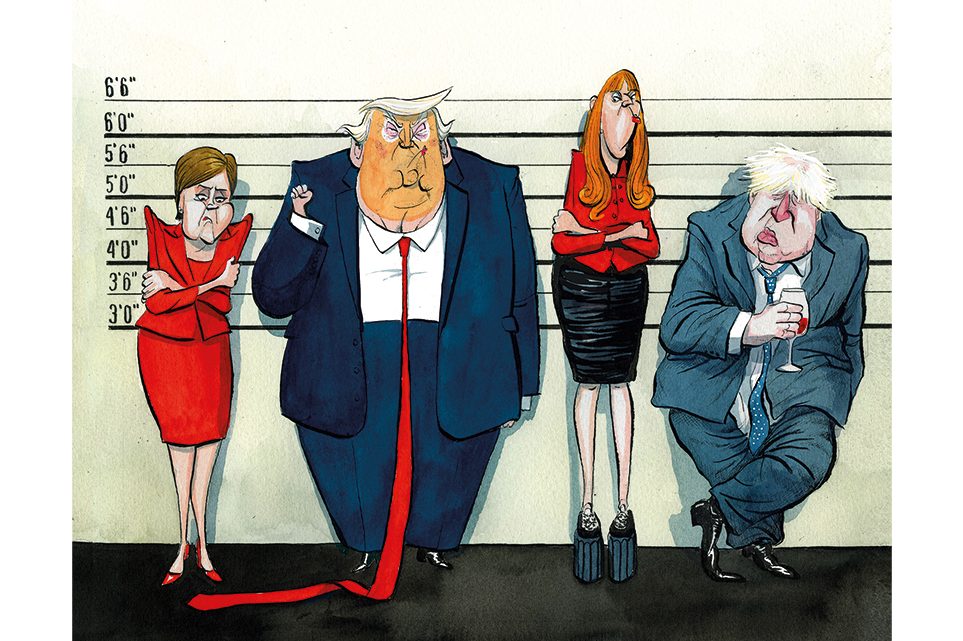










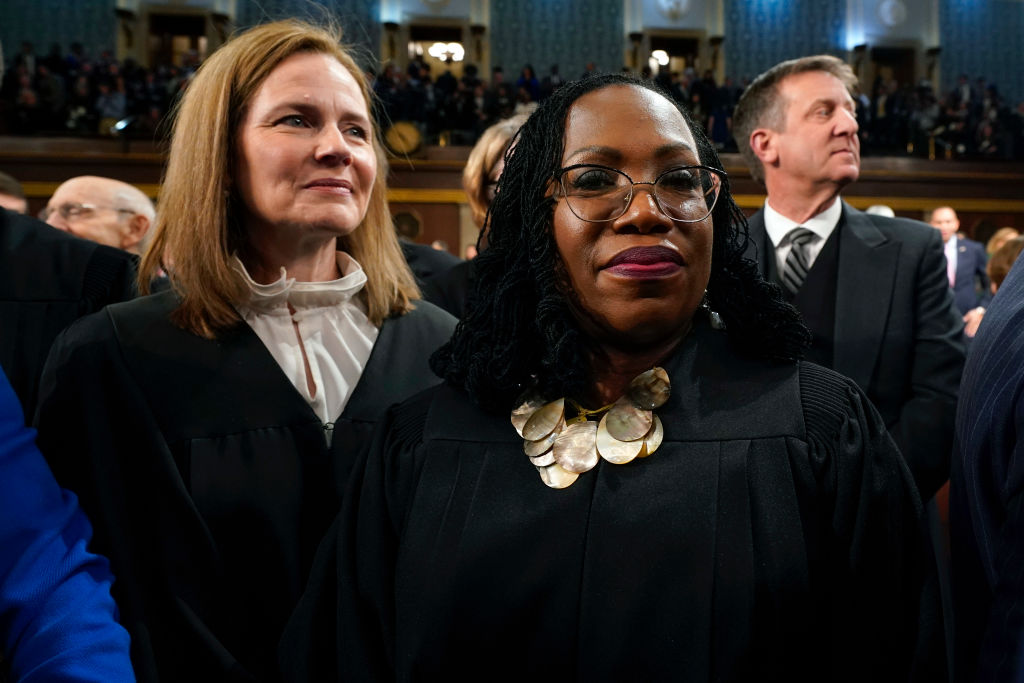
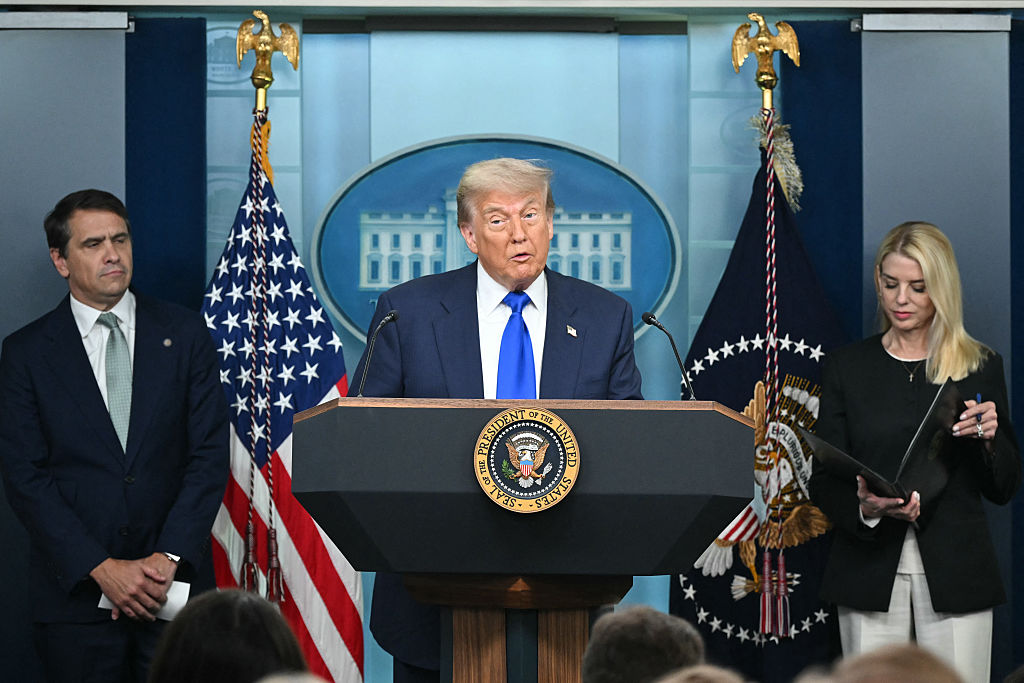










Leave a Reply